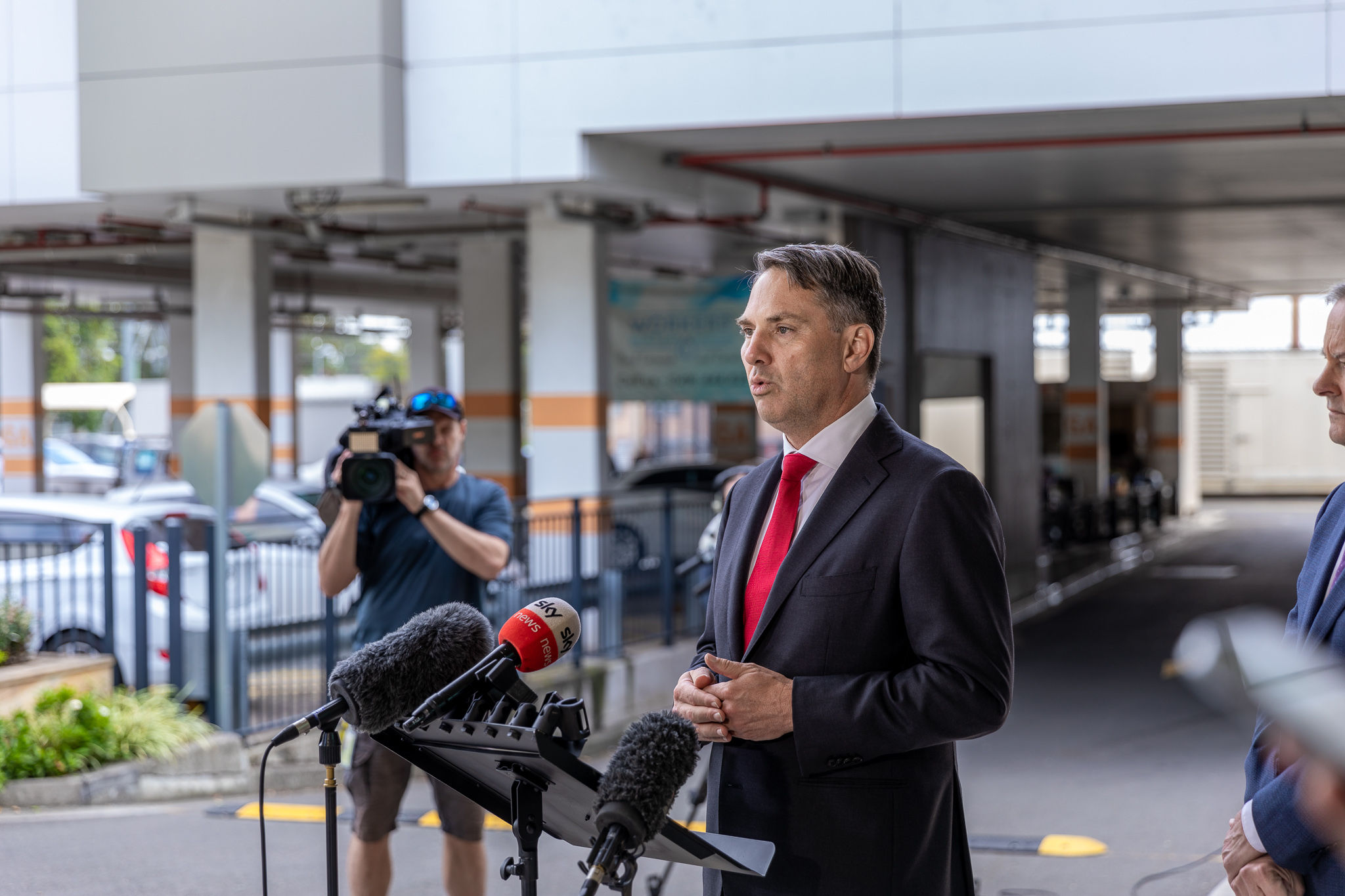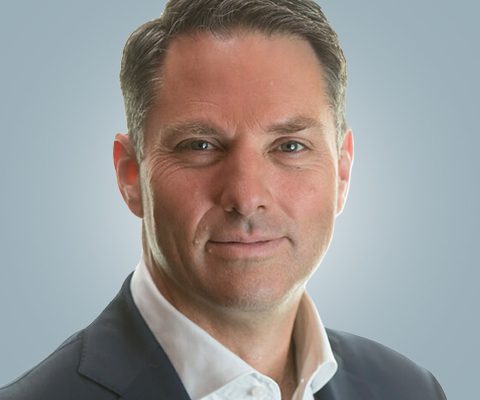SKY NEWS AFTERNOON AGENDA WITH KIERAN GILBERT

E&OE TRANSCRIPT | SUBJECTS: HSU; Labor’s National Conference; Labor’s National Reconstruction Fund; COVID-19 vaccine rollout; Brisbane lockdown.
KIERAN GILBERT, HOST: Live to the Labor Conference, the Deputy Labor Leader Richard Marles is with me. The HSU disaffiliating not a great look, is it about a lack of faith in your leader Anthony Albanese, or is it all about Jodi McKay, the New South Wales Opposition Leader?
RICHARD MARLES MP, DEPUTY LEADER OF THE AUSTRALIAN LABOR PARTY: Well, look, the HSU can speak for themselves in terms of the decision that they’ve made. We’re talking about the New South Wales branch, obviously, you know, what I would note is that this is a union, which represents workers who have done an incredible job over the course of the pandemic They do a really important role representing frontline workers in this State, in a New South Wales. And obviously, they’ve made the decision they’ve made but, you know, events like this happen. In the Labor Party, we’re very focused, though, on our National Conference and I think it’s got off to a fantastic start today, in terms of the announcement that we’ve made about the $15 billion National Reconstruction Fund.
GILBERT: It did get off to a good start, but then, you know, a distraction like this, it’s pretty unhelpful, isn’t it?
MARLES: Well, I mean, ultimately, as I say, this is a decision that is for the HSU. I certainly respect the work they do in representing the workers that they do. But we’re very focused on our National Conference, on laying the platform to present Labor as a genuine alternative at the next election, and we’re very optimistic and very determined about making sure that we do that and that we win the next election. And part of that, Kieran, is about making sure that we are doing everything we can to rebuild industry, to rebuild our economy, in a context where over the last eight years with this government we’ve seen the biggest deindustrialisation in Australia’s history. And that’s why we have announced the National Reconstruction Fund today.
GILBERT: So, in 30 seconds, the Reconstruction Fund for viewers tuning in, what is it?
MARLES: Well, it’s a $15 billion financing vehicle, which is aimed at making sure that we are able to rebuild industry in this country, focusing on climbing the technological ladder, focusing on businesses which are involved in innovating and focusing on our national strengths. Areas like mining, like agriculture, health, transport, and also thinking about those enabling sectors; robotics, data science, artificial intelligence. All of this is about making sure that we have an agenda to rebuild our economy out of COVID in a way where we seek to make Australia the most modern country in the world, because where lies modernity lies prosperity. And that’s what we’ve got to be aimed at doing. And the fact of the matter is that what COVID-19 has exposed is that since the coming of this Coalition Government, we’ve seen a massive drop in our industry, we’ve seen a loss in our national sovereign industrial capability. We’ve seen the deindustrialisation of this nation.
GILBERT: Will you – with this fund, the $15 billion, would it only go to, would it be done in partnership with say superannuation, the private sector only, or would the fund have the capacity as well to invest directly into projects, into companies, that it thinks worthwhile.
MARLES: Well, it’s really starting with that second point that you made, which is about directly invested sorry, directly investing in companies that we, that the fund sees as fulfilling its mandate of; rebuilding our industry, of generating high tech companies in this country, of generating secure well paid jobs. And it would do that through loans, direct investment, all those financing vehicles, but it is then also about working with the private sector and particularly the superannuation sector to try and leverage capital from that part of the economy. So that we can really turbocharge the rebuilding of our economy coming out of COVID, but really bearing in mind where our economy was up to when COVID hit. I mean, we are at a turning point in the country’s history, what COVID has done is given us an opportunity to reimagine the nation in that sense, and we’ve got to start climbing the technological ladder. We are falling down that right now. Our country is less complex in its manufacturing. We do badly in terms of commercialising public research, turning science into jobs. We’ve got to turn all of that around, if we want to be the modern country in the middle of this century that we’ve been up until now. And if we want our children and our grandchildren to have the prosperity that we’ve enjoyed up until now.
GILBERT: This looks like it’s modelled on the Clean Energy Finance Corporation which actually now makes money for the government. Would the fund that you would set up if you win the election, require projects and companies to say they would return a dollar to the taxpayer if they are to receive government funds, would they have to show they’re going to be profitable and return dollars back?
MARLES: Well, you’re right it is. It is modelled on the Clean Energy Financing Corporation. And you’re also right that that fund is now returning an income to the government. And so, in that sense, we have to see this as not so much expenditure as it is investment and putting capital out there, which enables the financing of these kinds of projects. The fund would be set up in legislation modelled on the CEFC and it would be expected to deliver a return to government and that’s how it would be managed.
GILBERT: Finally, before you go, I know the conference continues, but the Brisbane lockdown, it looks unfortunately, like it might be extended, given the number of cases has doubled. Do you accept that that the Labor State Government also has to take some responsibility here, in terms of how slowly the vaccines being rolled out?
MARLES: Well, the question of the speed of the rollout of the vaccine lies for the federal government. They’re the ones who made the promise that there would be 4 million doses provided to Australians this month, and what we’ve actually got is 600,000. They are 3.4 million short of their 4 million target. And I think what is playing out in Queensland is a reminder of the need to get us vaccinated. it’s a reminder that we’re not through this. And that, you know, we won’t be able to get to a settled new normal until, as a country, we’re vaccinated. And in that sense, you know, there is something of a race going on, because so long as we’re not vaccinated, the prospect of this kind of event will always be there and that means that you know, there’s always going to be a question mark in relation to our economic circumstances. So that’s why it’s really important that this rollout occur, and that squarely lies at the feet of the federal government.
GILBERT: Is this lockdown over the top?
MARLES: Well, I’m not going to make a judgement about that. I think Queensland is taking the correct advice from their health officials and what we’ve learnt in terms of lockdowns in the last few months is that, well in fact, lock downs over the last twelve months is that the wisdom here is in going hard and going early and that’s been a successful tactic over the last few months. So, I certainly don’t criticise Queensland for taking the steps that they have. But it’s a reminder that we’re not through this and the way we get to the other side of this, Kieran, is by vaccinating the country and that’s why we need to have a rollout of this and ultimately, it is the federal government’s responsibility to deliver that.
GILBERT: Deputy Labor Leader, Richard Marles live from Revesby at the ALP conference. Thanks.
MARLES: Thanks, Kieran.
ENDS
